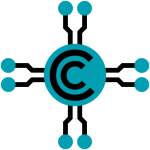Declaration on “Undoxxed” Crypto Actors

Regulation related to cryptocurrencies is highly fragmented. If there is regulation, it is
predominantly within national law. This circumstance creates viable operational conditions for
shady and anonymous actors, propagates epistemic uncertainty, and allows probable and
considerable investment risks.
Gatekeepers of the crypto space, such as Coinmarketcap (CMC) and Coingecko (CG), together with
privately owned centralized exchanges (CEX), play a significant role as they indirectly shape the
perception of investors and directly affect entrepreneurial accessibility and credibility in markets.
For example, CMC recognizes this important role and has worked for years to increase
transparency. What is remarkable is that both CMC and CG still do not require “Know Your
Customer” (KYC) obligation for listing of new cryptocurrencies on their platforms. It is also
generally known that KYC requirements vary a lot between different CEXs. All this combined
enables malevolent entrepreneurs and scammers to hide the identities of their team developers and
operators exposing investors as such to financial risk due to lack of accountability and transparency.
This issue, involuntarily, may also logically link retail investors to money laundering schemes and
terrorist financing.
Lawmakers worldwide are slowly embracing the great awakening and realizing the detrimental
risks of fragmentation in crypto regulation. There are currently several large-scale projects
underway to create uniform crypto regulation. One major theme in these projects is the
identification of service providers, investors and transfers. It can be clearly seen that there will
indeed be no room left for developers and operators to hide behind pseudonyms. This means; that
owning such cryptocurrencies, which have been deployed unknown actors, will soon be a thing
of the past. For example, giving false information to CMC is grounds for delisting. A credible and
successful crypto project can thus no longer have a developer working under the protection of a
pseudonym, eventually this will be prevented at the international regulatory level.
Trust and credibility are prerequisites for mass adaptation for any new technology. Parties involved
with virtual currencies must therefore take into consideration the actions of policy makers,
lawmakers, and financial regulators governing markets and keep vigilant of future regulatory
conditions. Markets in Crypto-Assets (MiCA), is set to establish a united approach for regulating
crypto projects in the European Union alongside countless new Central Bank Digital Currencies
(CBDC). Besides MiCA, there are several crypto regulation projects that will inevitably force both
investors and developers to KYC. It is thus easy to see that authorities will fight against anonymity
with growing force and legal ramifications.
As a false safeguard of democratization, still today nevertheless, anyone can commence a crypto
project with anonymity without fear of being “doxxed” and their personal information being
uncovered or having their individual freedoms attacked or discriminated against free market
regulation or on-chain transaction transparency. The nature of the beast radically alters the way
retail investors and crypto entrepreneurs can operate in blockchain markets compared to regular
financial markets. In ethical-normative terms, this situation is the classic deontological (actions are
either good or bad and serve a basis for rules) vs consequentialist arguments. Thus we must ask, if
the consequences for investors are more important than a priori inherent moral values of the
capitalist free market protections of competition and anonymity, if there ever was such a thing? We
argue that the former are!
Even if doxxing (publicly identifying information about a particular individual) has led to exposing
scammers, this doesn’t justify the problematic act of doxxing other people outside the governing
authority of legally imposed regulation itself. Without deontologically grounded moral rules, within
lacking legal foundations, the situation becomes almost impossible to navigate ethically. Doxxing is
rarely done with good intentions, and most often as the case is, it doesn’t bring about any good
consequences either. What makes crypto spaces so comfortable is precisely anonymity, the feeling
of safety one gets knowing that as individuals we don’t get exposed. Here we can invoke Immanuel
Kant’s formulation of the categorical imperative: “Act only in accordance with that maxim through
which you can at the same time will that it become a universal law.”
For someone to be able to argue; that doxxing is ethical, they’d have to argue that it is universally
ethical, even if it leads to the information of a small developer team being exposed and its members
harassed or for someone to become a target of hackers. This obviously can’t be morally justifiable
and thus the consequentialist argument takes the form of an ad-hoc installment depending on the
particular situation. There is no categorical imperative from which we can definitely draw a
universal moral judgment on doxxing seeing no international ratified regulation exists as of yet.
Despite the lack of regulation, within the consequentialist framework, judicial law never takes the
universal form anyway, rather it always depends on the particular situation. Such is the tension of
anonymity in crypto markets, it is an ancient dialectic discourse also embedded in the scientific
method, and endlessly debated between how we perceive the universal and the particular. Aristotle’s
formula can further help us make sense of the situation: “Virtue lies in our power, and similarly so
does vice; because where it is in our power to act, it is also in our power not to act.” Government
truly holds the power to decide on this matter, it might indeed be targeted with ethical-normative
arguments. A pro doxxing argument might follow this line of thought. Since with regulation
incoming, sooner or later, we might just as well speed up the process.
Jeremy Bentham’s formulation of the utilitarian argument can also assist the argument: “The
greatest happiness of the greatest number is the foundation of morals and legislation.”
Governmental regulation, and the probable doxxing process of the crypto space, hence serve for the
greater good of the collective in the long run, even if particular cases of doxxing might have
negative consequences. The deontological argument however draws its force not on the utility of an
action, but on the practical reason and its universal application. For Kant, an action’s moral worth
isn’t dependent on utility, but whether it conforms to our duty as a community: “An action, to have
moral worth, must be done from duty.” Henceforth, our common duty towards our fellow investors,
doesn’t depend on consequences. It should rather be followed because it conforms to practical
reasoning. Practical reason and rationality does not consult experience on deciding whether an
action is good or bad, it does so a priori synthetically. Our view here is; that if doxxing is morally
wrong, it is morally wrong despite the consequences it brings about, and the mere use of legislation
from a governmental body doesn’t make it any more morally justified if the law doesn’t practice
practical reason, which is the foundation with which we need to navigate all moral matters.
We reason, doxx yourselves now, or face delisting!
Ciprian Pater
CEO Publicae (NGO Org. Nr. 920447325)
NWO STATE DAO (nwo.capital
I’m a leading crypto author with over 10 years experience in the industry. I have been featured in numerous publications and am a regular speaker at major crypto events. I’m also the founder of Crypto Academy, which is dedicated to providing education on all things crypto.
